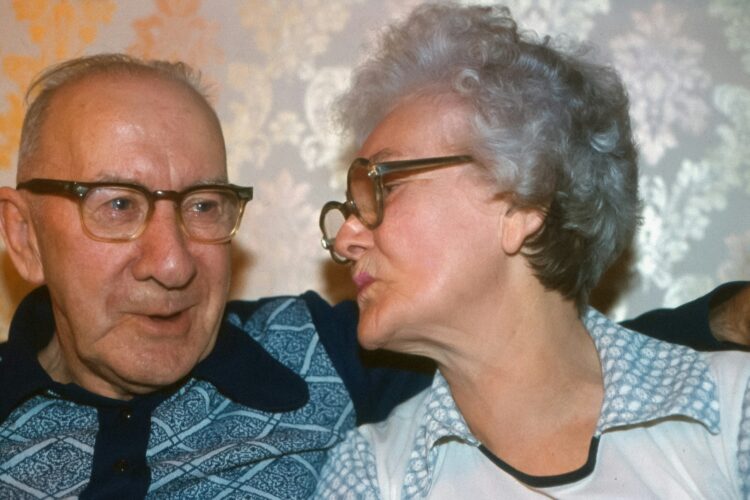
No matter how old you get, the bond you have with your parents is a deep one, and what you say to them can cut deeper than you might realize. Sometimes, in frustration or without thinking, we say things that stick with them long after the moment passes. If you want to keep your relationship strong, here are 15 things you should never say to your parents.
“You just don’t get it.”

Even if they’re from a different time, most parents are trying their best to understand you. Saying they “don’t get it” shuts them down instead of helping them grow with you. It makes them feel like their thoughts and experiences don’t count anymore. This can hurt them more than you think, especially when they’ve spent years trying to guide and support you.
“You were never there for me.”

It’s okay to talk about childhood wounds, but saying this in anger or without context can be devastating. Many parents carry guilt they never voice, and hearing this can reopen emotional wounds. If something hurt you growing up, try to explain how it affected you instead of turning it into an accusation—they’re more likely to listen and understand that way.
“Why can’t you be more like other parents?”

This comparison rarely ends well. It makes them feel like they failed, even if they’ve done their best. Every family is different, and even if you’re jealous of how easy your friend talks to their mom or dad, throwing that in your parents’ face only creates distance. If something’s missing, explain what you need, not who you want them to become.
“I didn’t ask to be born.”

This one cuts deep, even if you mean it as a joke. It implies they made a mistake by having you, and that your life is somehow their burden to bear. Most parents made sacrifices to raise you, and hearing this feels like all that effort and love were wasted. If you’re feeling overwhelmed, say that, but avoid this phrase altogether.
“You ruined my life.”

In the heat of the moment, this can slip out, but it sticks with them for years. Whether it was a decision they made or something that affected your path, it’s not always as black-and-white as it feels. Instead of blaming, try talking about what you needed or how you felt. Blame pushes people away, but honesty invites healing.
“I don’t care what you think.”

Even if you don’t agree with them, dismissing their opinion altogether is harsh. Most parents just want to be heard, even if they don’t have the final say in your decisions. When you brush off their voice like it means nothing, it can feel like rejection. You don’t have to follow their advice, but showing respect still matters so do that.
“You always take their side.”

Whether it’s about a sibling, your other parent, or someone else, this accusation can create tension fast. It makes them feel like you see them as unfair or even disloyal. If you’re feeling unheard or misunderstood, say that instead of turning it into a competition. It’s easier for them to listen when you focus on your feelings rather than blaming.
“I wish I had different parents.”

This one hits a nerve that doesn’t heal easily. Even if you say it out of frustration, it lingers in their heart long after the argument is over. No one’s perfect, but they gave you what they could with what they knew. If you need space or want to express disappointment, say it in a way that doesn’t completely shut the door on them.
“You owe me.”

Whether they made mistakes or missed important moments, turning your relationship into a debt they have to repay changes the entire dynamic. Most parents don’t see their love as transactional—they gave what they had, even if it wasn’t always enough. It’s okay to ask for more now, but demanding it as if it’s owed won’t bring you closer.
“You’re too old to understand.”

Age doesn’t cancel out wisdom. Even if your parents aren’t tech-savvy or up to date with trends, they’ve lived through more than you realize. Dismissing their thoughts because of their age creates a wall between you. If you want to help them understand your world, include them in it instead of pushing them out of it.
“This is why I don’t tell you anything.”

That sentence feels like a locked door. It tells your parents you’ve already given up on them being a safe place. If they’ve reacted poorly in the past, it’s okay to say, “It’s hard for me to open up because of how you responded before.” That’s still honest, but it gives them a chance to try again instead of shutting them out completely.
“You’re just being dramatic.”

Parents have feelings too, even if they don’t always express them like you would. Calling them very dramatic brushes off their emotions as invalid or exaggerated. It may seem like they’re overreacting, but they might be reacting differently than you would. Take a moment to understand where they’re coming from instead of shutting it down with this one-liner.
“I’ll never be like you.”

Trying to separate yourself is part of growing up, but this phrase feels like a rejection of who they are. It makes them feel like their values, choices, or identity weren’t good enough to pass down. If you’re choosing a different path, say that without turning it into a criticism. You can be different without putting them down in the process.
“You’re the reason I need therapy.”

Therapy can be helpful and healing, but turning it into a blame game doesn’t help anyone. If your parents contributed to your pain, that’s valid—but using therapy as a weapon instead of a tool for healing just builds more resentment. Try saying, “I’m learning more about how things affected me growing up,” instead. It’s more honest and less hurtful.
“I don’t need you anymore.”

Independence is healthy, but no parent wants to feel discarded. This phrase can feel like a slap in the face, especially if they spent years being your rock. Even if you’re confident and self-sufficient now, letting them know they still matter—just in a different way—can mean more than you think. Being grown doesn’t mean cutting love out of the picture.

